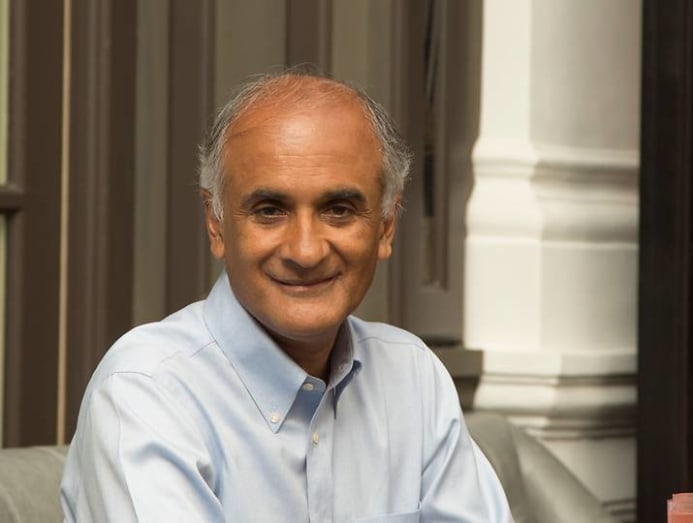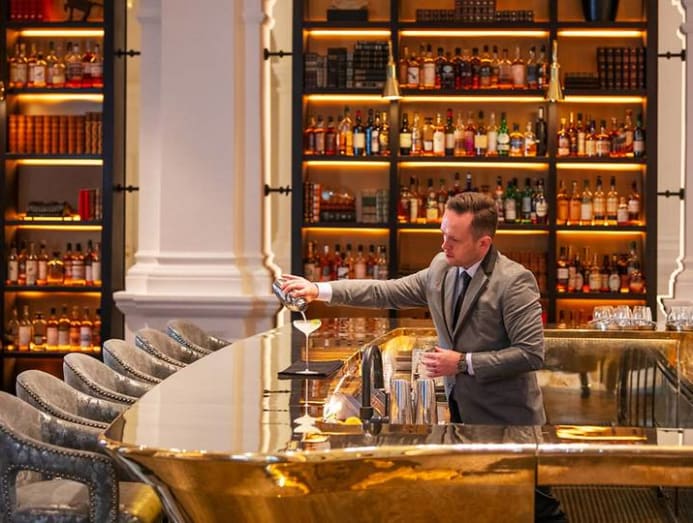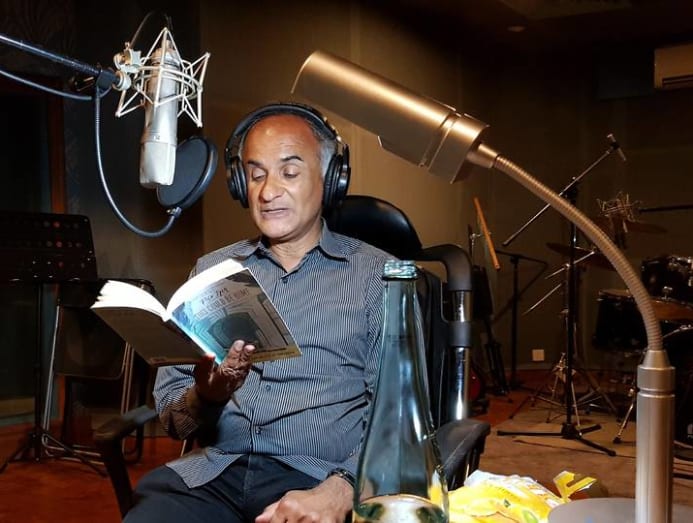Why travel writer Pico Iyer stopped eating fast food and shuns Instagram
Renowned travel writer and novelist Pico Iyer famously does not use a mobile phone, so it'due south more or less a given that he doesn't accept any vacation selfies and post them on social media. He doesn't even own a photographic camera, much less a Facebook account.
It'due south like he's trying his hardest not to fit in to the world he lives in.
When you think most information technology, that may exist the most comfortable state of being for the American writer built-in in the United kingdom of great britain and northern ireland to Indian parents who has lived in suburban Nippon for the last 27 years with his Japanese wife, and whose writings address the theme of belonging nowhere and everywhere at the aforementioned fourth dimension.
That's a theme that surely has historical resonance in Singapore, he pointed out, over a chat at the Raffles Hotel.
READ> Two years later: Kickoff look inside a brand new Raffles Hotel Singapore
"I suppose a lot of my writing has been about, 'How practise we love, how do we dream, how do we write', when we're living in many different places at once; when our sense of belonging is not confined to one place only is fluid. And I think most people in Singapore have a sense of domicile that's well-nigh the passageways between places," he mused.
"That is so different from my grandparents' age, when people, almost at nascency, were given a very stock-still sense of what their race and religion and tribe and home was, and where their sense of belonging was…. I'm interested in how Singapore brings together people with these wider senses of belonging in a kind of literal common wealth, telling them to leave their categories behind just almost to be joined past the ideals they accept and the future they create."

Iyer was in Singapore equally The Raffles Hotel'southward first writer-in-residence, a new plan that invites writers from anywhere in the world to spend a few weeks at the iconic hotel. His latest book This Could Exist Home: Raffles Hotel And The City Of Tomorrow, published past Epigram Books, revolves around the hotel. And the blurb on the back comprehend begins with, "Home is non something you're born with."
Marvelling at how the hotel and the urban center around it has changed, Iyer recalled his first visit to The Raffles Hotel in 1984: Information technology was "rather dusty and neglected. Inexpensive. Although the experience was much less elegant than it is at present, it still had the high ceilings and the slowly turning fans. And I call back most important, the sense, that'due south so pronounced now, of tranquility and privacy. And I thought, well, this is a place that gives a writer space to write, just also a lot of material to write on."

He continued: "In those days my chore was to be cooped upwardly in a 25th floor function in midtown Manhattan, writing bystander accounts of places I'd never seen for Time Magazine. I think it really planted various seeds in my mind… Coming to a place similar Singapore, there'd never exist a shortage of things to write about."
One of the biggest differences between the Raffles Hotel of then and now, though, is that now, "I heighten and lower my curtains in my room with an iPad," he chuckled.
It seems as if he can't run from technology for much longer. Every bit one of the onetime guard of acclaimed travel writers, what does Iyer think of the fact that people are now getting their travel inspirations from listicle-writing bloggers, sponsored influencers, and in the course of foursquare-cropped photos? How does he feel when he sees articles with titles like, "x most Instagrammable umbrella shops in Scotland"?
"Diminished attention bridge doesn't delight me," he said, with a chuckle. "But I think humans haven't changed. Humans have some machinery that realises we're non beingness sustained by that. I think of information technology as the equivalent of junk food. And actually, for much of my life, I would eat often at McDonald's and Kentucky Fried Chicken. At some bespeak, I idea, 'Gosh, information technology's not really filling me up. I'thousand more hungry when I leave. It is my reflex to practise information technology, just this is not nourishing, in some deep way.'"
He connected, "Nosotros've all got on this accelerated roller coaster we never quite wanted to get onto, and we don't know how to get off it. But the power to get off is probably in our hands, then information technology's probably just a matter of our selection."

Besides, he said, "When my friends tell me, 'You've got to get to this place or that place in Paris or Singapore', I oft won't listen to them. When a stranger whom I've never met and I know nothing well-nigh says that online, I'm sure I wouldn't listen to her. She may know a lot well-nigh Singapore, but she wouldn't know about my tastes or my eccentricities.
"I think the nature of travel is that we want to make our own discoveries. And the virtue of the '10 umbrella shops in Scotland' is that while you lot're walking to one, you become lost, and you find the all-time cathedral in Scotland, or the all-time unknown coffee store, or any it might be."
READ> The discerning traveller'southward guide to Hongdae, Seoul'due south coolest neighbourhood
Source: https://cnalifestyle.channelnewsasia.com/people/pico-iyer-in-singapore-250786
0 Response to "Why travel writer Pico Iyer stopped eating fast food and shuns Instagram"
Post a Comment